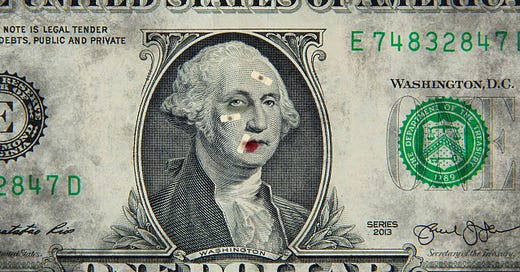Will the Sanctions Against Russia Accelerate the De-Dollarization of the World?
Not for now, but the changeover seems to have started.
The Russian invasion of Ukraine and the salvo of economic sanctions that followed will upset the international financial system in the medium and long term, even if the uncertainties about the evolution of the conflict should make us cautious about the extent of the possible changes. On Saturday 26 February, the West decided to freeze the reserves of th…
Keep reading with a 7-day free trial
Subscribe to Sylvain Saurel’s Newsletter to keep reading this post and get 7 days of free access to the full post archives.




